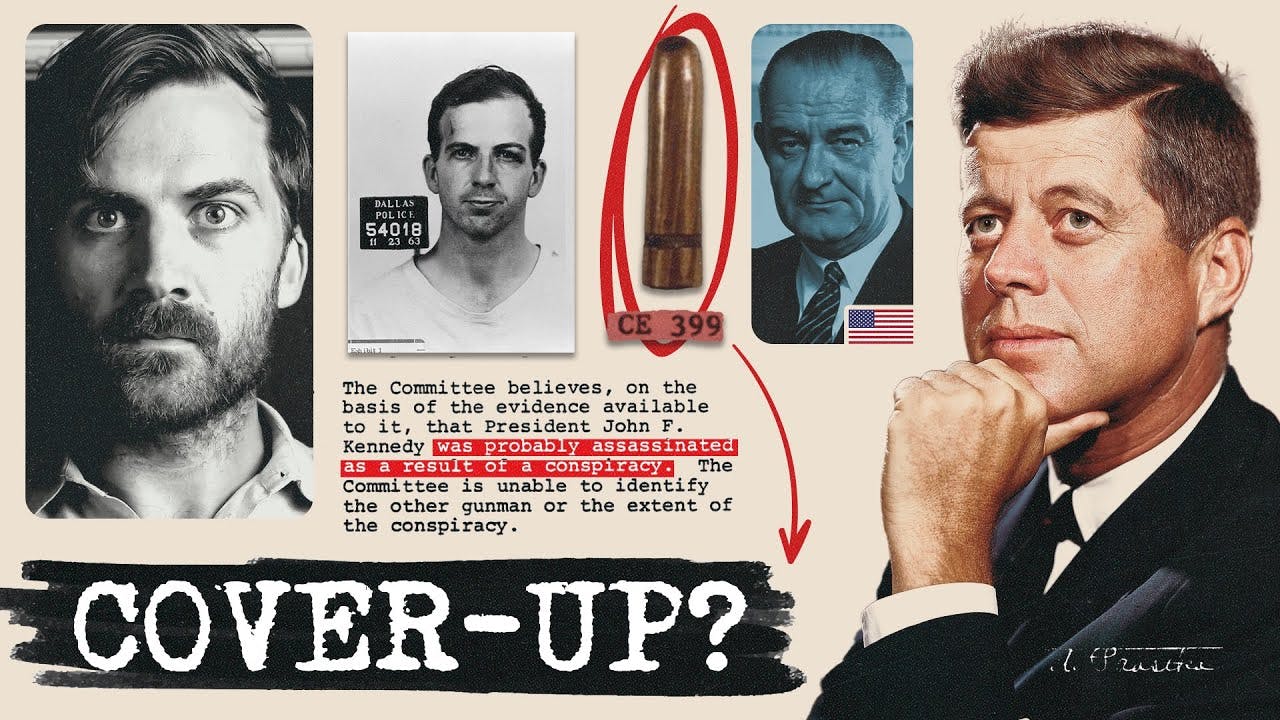Why People Think The Government Killed JFK
()

INTRO (00:00:00)
- Details of JFK's assassination, including immediate cover-up attempts by the U.S. government, are revealed.
- Insinuations that the FBI and CIA withheld information from both the public and the investigative commission.
- Lyndon B. Johnson expressed doubts about the official story, leading to widespread public skepticism and congressional claims of conspiracy in the 1980s.
- The lack of transparency from government bodies led to various conspiracy theories regarding the assassination.
- Reference to a shift in public trust and JFK's significance in American history during the 1960s.
- The section concludes with thanks to BetterHelp for sponsoring the content and promoting its therapy services.
JOHN F. KENNEDY (00:03:31)
- JFK was well-liked, charismatic, and perceived confidently by the public, which propelled his political career to the presidency.
- During a period of great transition in the early '60s, America was positioned as a global superpower amidst the Cold War.
- Discomfort with secretive military and intelligence actions, JFK aimed to curtail covert operations that included funding wars, orchestrating coups, and assassinations.
- He dismissed or demoted various military and intelligence leaders, striving for peace and resisting violence.
- Tensions rose between JFK and the military/intelligence communities due to his opposition to aggressive American power demonstrations.
- The context of JFK's relationship with the military and intelligence agencies is essential when examining the events of November 1963.
THE ASSASSINATION (00:05:20)
- JFK, alongside Vice President Lyndon B. Johnson and others, arrived in Dallas for a scheduled speech.
- While riding in an open-top limousine with his wife and the Governor of Texas, JFK was shot by an assassin.
- The President suffered fatal wounds to his neck and head, while Governor Connally was also injured.
- Following the shooting, JFK was pronounced dead at the hospital, marking a grim moment in national history.
THE INVESTIGATION (00:06:35)
- Lee Harvey Oswald, a 24-year-old former Marine with communist ties, was identified as the prime suspect for the JFK assassination.
- Oswald worked in the building from which the shots were fired and killed a Dallas police officer while fleeing.
- Oswald claimed that he was a patsy and had planned to plead not guilty, but he was shot and killed by Jack Ruby before trial.
- J. Edgar Hoover, the director of the FBI, prematurely concluded that Oswald acted alone as a communist sympathizer without a thorough investigation.
- Lyndon B. Johnson was quickly sworn in as President and the Warren Commission, with Allen Dulles (fired by JFK) as a member, was formed to investigate.
- The Warren Commission, relying heavily on the FBI's evidence, reported that Oswald, acting alone, fired three shots, with one bullet causing multiple injuries and the third delivering the fatal headshot.
THE COVER-UP (00:15:28)
- In 1960s Cold War America, a conspiracy involving the Soviet Union or Cuba in JFK's assassination could lead to public panic or military escalation.
- The CIA had its secret motives to avoid an in-depth investigation, fearing exposure of their attempts to assassinate Fidel Castro.
- The U.S. government wanted to unite Americans around a simplified narrative, discouraging alternative theories to prevent system-threatening speculation.
- Suppressing the full picture sparked public skepticism, paving the way for persistent conspiracy theories.